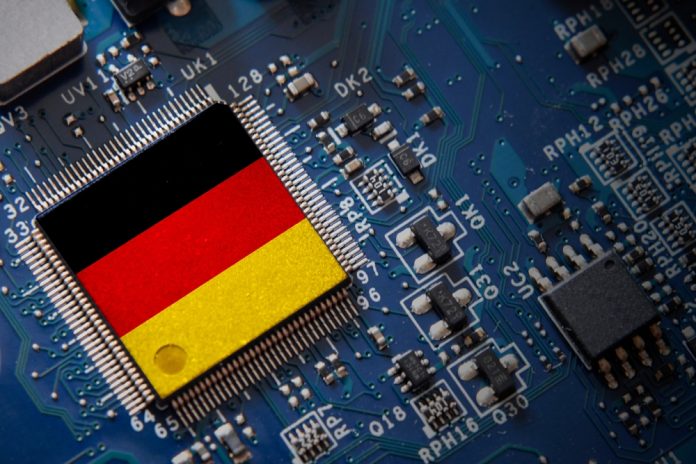The German Ministry of Economic Affairs has announced newly proposed funds to support 10 to 15 chip investments, ranging from wafer production to microchip assembly.
According to a Bloomberg report, around €2.1bn in total funding will go towards chip investments.
The Economy Ministry published a call for semiconductor companies to apply for new subsidies in mid-November for projects that contribute to a strong and sustainable microelectronics ecosystem in Germany and Europe, following the European Chips Act (ECA).
“Funding is to be provided for the establishment of modern production capacities that significantly exceed the current state of the art,” stated Annika Einhorn, a spokesperson from the Economy Ministry.
The importance of chip investments
Governments worldwide have been investing public funds in the chip industry in an effort to localise the production of components that control everything from cutting-edge artificial intelligence to everyday gadgets.
The push comes after COVID supply disruptions and as rising tensions between the US and China over Taiwan could interfere with a key source of essential technology.
The European Chips Act, passed in 2023, aims to strengthen the EU’s semiconductor ecosystem and double its market share to 20% of global production capacity by 2030.
Challenges faced in the semiconductor industry
The Bloomberg report notes that the German chip industry is facing headwinds.
Intel’s €30bn Magdeburg factory, which was touted as the largest project supported under the European Chips Act with up to €10bn in subsidies, has been delayed due to the struggling chipmaker’s internal challenges.
Furthermore, Wolfspeed and ZF Friedrichshafen AG withdrew plans for a semiconductor joint venture in Germany.
New chip investments could bolster local production
The Ministry of Economic Affairs intends to use the newly proposed funds to support 10 to 15 projects across various areas, ranging from wafer production to microchip assembly.
However, the final allocation of the subsidies could depend on the new German government that is expected to take office in February.
The EU has set a target to double its global chip market share by 2030. Concerns about supply chain fragility and dependence on Asian companies have triggered efforts to bolster local production.









